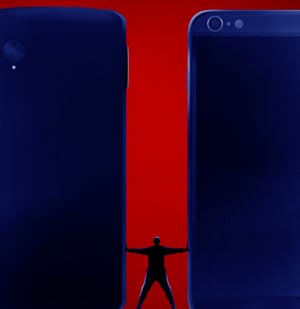
IPFS News Link • Internet
Mobile internet is now just the internet
• http://www.theguardian.comhe Christmas holidays are the time of year when different generations of the family gather around the dinner table. So it's a perfect opportunity for a spot of tech anthropology. Here's how to do it.
At some point, insert into the conversation a contemporary topic about which most people have strong opinions but know relatively little. Jeremy Clarkson, say. There will come a moment when someone decides that the only thing to be done to resolve the ensuing factual disputes is to "Google it". Watch what happens next. The younger members of the group will pull out their smartphones and key in the search terms. Most of the older members will do nothing – other than make a mental note to look it up when they're next at their PCs and wait for the smartphone owners to report what they have found.
What does this experiment demonstrate? Two things, one trivial, the other profound. The trivial one is that there is a generational gap in attitudes to networked technology. The profound one is that it no longer makes sense to talk about the "mobile internet". For most people in the world now there is only one internet – the one they access via their mobile phones. Or, as the tech analyst Benedict Evans puts it, "Mobile is not a subset of the internet any more, which you use only if you're waiting for a coffee or don't have a PC in front of you – it's becoming the main way that people use the internet."
Illustration by Matt Murphy.
Mr Evans includes a fascinating chart from a 2014 Ofcom survey which vividly illustrates this. It shows that mobile devices are used everywhere, not just when people are mobile. 66% of those interviewed accessed the internet on their phones "both at home and outside", and 16% "mainly at home". So already, for over 80% of UK smartphone owners, their phones are probably their main channel to the internet, and the only way those numbers are likely to go is up.
This shift has long been predicted – for example by Jonathan Zittrain in his book The Future of the Internet – and How to Stop It, but few people thought it would happen so quickly. The avalanche was triggered by the late Steve Jobs when he had the insight that phones were really powerful networked computers that you could hold in your hand. This led to the launch of the iPhone in 2007, after which the die was cast. In 10 years or less, most mobile phones will be smartphones and 5 billion people will use them as their gateway to the internet.





























